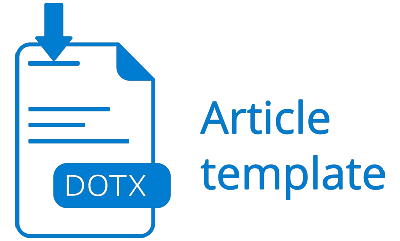Pengelolaan Desa Wisata Dalam Rangka Peningkatan Pendapatan Asli Desa di Desa Wisata Besan Kabupaten Klungkung
Abstract
A tourist village is a rural area in which it offers rural authenticity, both social life, culture, customs and is supported by tourist potential and supporting facilities presented in the structure of village life. Besan Village is one of the villages that has been designated as a Tourist Village. By establishing it as a Tourist Village, it will increase the Village's Original Income. This study uses a qualitative descriptive approach that aims to describe the management of tourist villages to increase village original income. This research is a qualitative research using the Penta helic theory in which the development of the Tourist Village must be focused on the integrated development of 5 (five) important elements consisting of Academics, Business, Community, Government, and Media. This research was conducted in Besan Tourist Village, Klungkung Regency. The type of data used is qualitative with data sources consisting of primary and secondary data. Data collection techniques used are in the form of observations, interviews, documentation studies, and online data searches. Data analysis techniques are carried out by collecting data, reducing data, presenting data and drawing conclusions. The results of this study indicate that the management of the Besan Tourist Village in the context of improving the original village in the Besan Tourist Village is an integrated development of 5 (five) important elements consisting of Academics, Business, Community, Government, and Media. From the results of this study the researchers concluded that the Management of Tourist Villages in the Context of Increasing Village Original Income in Besan Village in Klungkung Regency has been going well but still experiencing some obstacles.
References
Arikunto, S. (2010). Metodelogi Penelitian Edisi Revisi. Yogyakarta: Bina Aksara
Baskoro. (2018). Pariwisata dan Perhotelan. Bandung: Alfabeta.
Budiman, Arief. (2011). Teori Pembangunan Dunia Ketiga. Jakarta: PT Gramedia Pustaka Utama.
Bungin, Burhan. (2018). Metode Penelitian Sosial & Ekonomi: Format-Format Kuantitatif Dan Kualitatif Untuk Studi Sosiologi, Kebijakan, Publik, Komunikasi, Manajemen, Dan Pemasara. Jakarta: Kencana Prenada Media Goup.
Carayannis E.G. and Campbell D.F.J. (2012). Mode 3 Knowledge Production 1 in Quadruple Helix Innovation Systems.
Bintarto, R. Edwin. (2015). Interaksi Desa-Kota dan Permasalahannya. Jakarta : Ghalia Indonesia.
Ganie-Rochman, Meuthia. (2000).“Good Governance : Prinsip, Komponen dan Penerapannyaâ€, dalam HAM : Penyelenggaraan Negara Yang Baik dan Masyarakat Warga, Jakarta : KOMNAS HAM.
Idup, S., & Fernanda, D. (2011). Dasar-dasar Kepemerintahan yang Baik. Jakarta: Bahan Ajar Diklatpim LAN-RI.
Kurniawan,Agung. (2015). Transformasi Pelayanan Publik. Yogyakarta: Pembaharuan.
LAN & BPKP. (2001). Akuntabilitas dan Good Governance. Jakarta: Lembaga Administrasi Negara.
Priatna, Cepi dan Diarta M. D. (2015). Perilaku Organisasi. Bandung: PT. Remaja Rosdakarya, Sedarmayanti. 2012. Good Governance Kepemerintahan yang Baik. Bagian. Kedua Edisi Revisi. CV Mandar Maju. Bandung.
Tjiptono, F. (2000). Manajemen Jasa, Edisi Kedua, Andy Yogyakarta
 Abstract viewed = 183 times
Abstract viewed = 183 times
 PDF (Bahasa Indonesia) downloaded = 636 times
PDF (Bahasa Indonesia) downloaded = 636 times







1.png)



